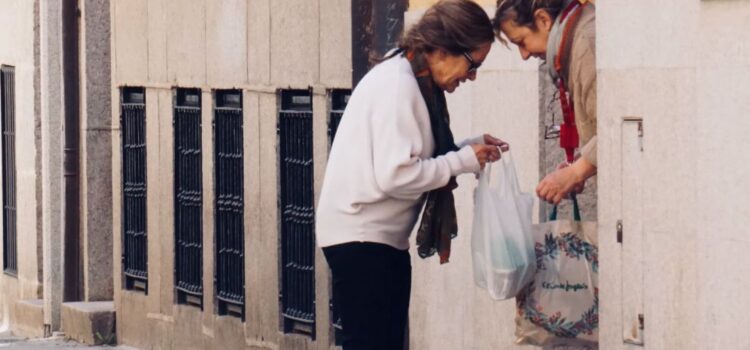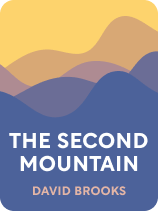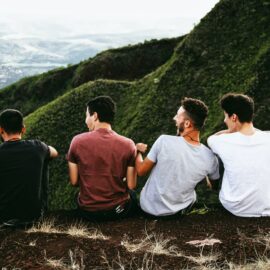

This article is an excerpt from the Shortform book guide to "The Second Mountain" by David Brooks. Shortform has the world's best summaries and analyses of books you should be reading.
Like this article? Sign up for a free trial here.
Do you enjoy a strong sense of community? How well do you know—and care about—your neighbors?
David Brooks argues that the relationalist approach to life requires a commitment to many people in the form of a local community. He makes a case for the importance of building community, and he offers some steps for doing so.
Continue reading to learn why and how you can make a strong commitment to community.
Commitment to Community
According to Brooks, the prevailing individualism in Western culture is responsible for the erosion of community. In response, he argues that the relationalist approach to life requires a commitment to community because local communities help serve our neighbors.
To demonstrate the importance of community, Brooks first discusses the consequences of the individualist belief in self-sufficiency. Specifically, he claims that this belief has led to widespread loneliness, as Westerners are afraid to ask for help from others.
(Shortform note: According to experts, the widespread loneliness that Brooks laments grew worse during the Covid-19 pandemic, as social distancing and required isolation deprived many individuals—especially the elderly—of social interaction.)
Yet, robust local communities can mitigate this loneliness. In such communities, Brooks claims that rich relationships exist between neighbors, who live selflessly and are devoted to caring for one another. In turn, healthy communities prevent lonely individuals from falling through society’s cracks.
Brooks offers various steps that we can take to foster such communities. First, he recommends creating an outlet for gathering the community together. For instance, you might start hosting neighborhood dinners or organizing city-wide festivals. Additionally, he claims you must be vulnerable at these events, sharing your struggles with your neighbors. Because vulnerability is a prerequisite for trust, Brooks argues that these moments of vulnerability are necessary for forming deep communities bound by trust.
(Shortform note: In addition to these steps, there are several other ways that you can strengthen the community around you. For instance, shopping at local businesses helps financially support the members of your community and is also an effective means of meeting new members of your community. Moreover, starting a community garden can provide a shared project for the community to partake in.)
Next, Brooks asserts you must convince your fellow community members to adopt a set of principles that ties the community together and sets the foundation for lasting progress. These principles include:
- The community can solve its own problems since it understands these problems best.
- The most vulnerable among us—the impoverished, the disabled, the elderly—are most important because we judge communities by the treatment of their lowest members.
- We should aim for progress over decades, not just months, because the community that we start cultivating now will have an impact far into the future.
(Shortform note: In Thank You for Being Late, Thomas Friedman lists other steps needed to strengthen communities that supplement Brooks’s principles. For example, he argues that community-conscious local businesses can help communities thrive, as they can provide jobs and address problems specific to your community.)
Finally, Brooks argues that to solidify the community that’s been formed so far, you need to implement new traditions that define the new community. For example, you might start a tradition of the entire community attending high school graduations to celebrate the accomplishments of the community’s students. By creating a feeling of cohesion, these new traditions reinforce the community that’s grown so far.
(Shortform note: In addition to creating more cohesive communities, researchers have found that traditions promote cohesion in family units as well. Family traditions, they reported, serve to stabilize the family in periods of stress and are correlated with higher marital satisfaction and adolescent mental wellness.)
Exercise: Strengthen Your Local Community
One key commitment of Brooks’s relationalist approach to life is the commitment to community. In this exercise, evaluate strategies for strengthening the community around you.
- Describe a recent situation in which you engaged with your community. How did this experience make you feel closer to your community?
- Which outlets do the members of your community currently have for spending time with one another?
- How effective are these outlets at fostering a sense of community?
- Of Brooks’s steps for strengthening community (hosting neighborhood dinners, being vulnerable with your neighbors, embracing the code of the neighbor), which do you think is most effective at forging a sense of community? Why?
- How could you implement that step in your community? This might involve, for instance, devising a concrete plan to organize a community event.

———End of Preview———
Like what you just read? Read the rest of the world's best book summary and analysis of David Brooks's "The Second Mountain" at Shortform.
Here's what you'll find in our full The Second Mountain summary:
- The negative consequences of the West's focus on individualism
- Why you should embrace relationalism to lead a fulfilling life
- The four commitments that constitute relationalist living






